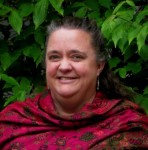Julia is currently with the Findhorn Foundation ecovillage in Scotland. For two years she served as Communications Manager for the Columbia Water Center, Earth Institute, Columbia University. She has also worked as a planning consultant and development officer in environment, sustainable development, social services, and health, in Central America, the UK and the USA.

One of the issues most passionately discussed now in the media and blogosphere is the KeystoneXL Pipeline proposal, to allow Canadian oil and gas company TransCanada to build a pipeline to transfer tar sands oil from Alberta to Texas. So what are the arguments?

As the drought in Texas continues with no end in sight, some cities are turning to innovative water alternatives in an attempt to maintain quality of life as they know it. The new mindset includes viewing waste water as an asset.

Water problems are solvable. None of the many challenges are outside of the ability of human-kind to respond and resolve. As with so many things, political will and money are needed, but the International Water Forum at the UN took it further; the general public has to understand and care before the political will and money will materialize. And the way to the general public’s heart is through effective communication.

After working with over 500 farmers last year to conduct a field experiment on the use of tensiometers to reduce irrigation in rice fields, this year they will be working with about 5,000. As part of this expansion, our program partners at the Punjab Agricultural University (PAU) are working with Cooperative Societies, a network of which reaches some 3,000 villages in the state.

We first reported about the project by a group of Puerto Rican high school students, Project H2O (Help to Others), and the documentary film about the project being made by the parents of one of the students, in August 2010. The students are continuing to develop Project H2O in their school, in an educational phase that looks at not only global water scarcity, but also water issues at home in Puerto Rico. These are some of the highlights they shared with us.

In honor of World Water Day, Columbia Water Center is releasing a new White Paper: Addressing the Water Crisis in Gujarat, India. The paper presents the results of Columbia Water Center’s study of the severe groundwater crisis in the Mehsana region of Northern Gujarat, India. The study concludes that the current pattern of groundwater exploitation is both costly for the state and unsustainable for farmers, and could lead to the complete failure of agriculture in the area within a few years if left unchecked.

As explained in a recent blog post, falling groundwater levels in the Northern regions of the state of Gujarat, India, are reaching dramatically dangerous proportions. Columbia Water Center (CWC), however, believes that there are numerous technologies and practices that could save significant amounts of water and energy. Farmers have shown interest in applying them, but… read more

For more than three decades, the farmers in Northern Gujarat State, in India, have produced abundant food crops, and have had a thriving dairy industry. In order to make that happen, they have been using once plentiful underground water resources.
Because local aquifers are being replenished more slowly than the water is being withdrawn, groundwater tables have been falling throughout the period, and the situation has become so serious that North Gujarat’s future agricultural success is now in jeopardy.

The annual American Geophysical Union (AGU) meeting is an all-you-can-eat buffet of the most current scientific knowledge available on the planet. Name your pleasure: space, climate change, geomagnetism, nonlinear geophysics, volcanology, biogeosciences, etc. You have to be careful to indulge in moderation over the five-day event, or risk unseemly bloating.
The Columbia Water Center contributed its own tasty dishes to the feast, mostly under the hydrology section of the menu.

“With electricity and water, this place is heaven on earth.”
That is the opinion of several residents I spoke with last summer during a visit to Milhã, in the center of the state of Ceará, Brazil. In this rural, semi-arid region communities are small and close-knit, and many families have lived there, often in the same houses, for generations. People love the place, but they aren’t unaware of the difficulties of living without the modern conveniences that we in the US take for granted. When electricity arrived to the houses a few years ago, it was a huge improvement in their quality of life, bringing lights and other conveniences. When water arrives, they say, it will be heaven.











